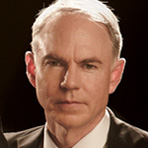Specialty
Charles Sawyers
Ongology & Cancer Research
Self Exam
- Occupation: Physician-Scientist; Oncologist
- Alternative career choice: Science Reporter
- What do rock stars and scienctists have in common: Both are creative, visual people who like to do their own thing.
- Musical Instrument I Play: None
- I tend to approach life: With Optimism
- Biggest misconceptions about me or my work: The drugs we create are cures.
- Worst part-time job ever: Delivering the yellow pages door to door.
- Longest med school study session: Anatomy
- Best moment in medicine/research: Informing the first leukemia patient taking an experimental drug that she'd gone into complete remission.
About My Research
Disease Area: Leukemia, prostate cancer
Research Area: Cancer genomics, drug development and overcoming drug resistance
Science Impact/Accomplishments or Goal: I played a key role in developing gleevec, a drug that blocks the gene that causes chronic myeloid leukemia and puts patients into remission without the side effects of chemotherapy. Although it is not a cure, gleevec prolongs the life of these patients by many years. In patients where gleevec stops working, we discovered why and developed a second drug called dasatinib that puts patients back into remission. We then pursued a similar strategy in prostate cancer and discovered a drug called MDV3100 that blocks the growth of tumors in men with metastatic prostate cancer. MDV3100 is now in the last stage of clinical trials.
Research Description: My laboratory studies genes that cause prostate cancer, with the goal of using that information to improve how we diagnose and treat this disease. We start by examining the prostate cancers of patients treated at Memorial Sloan-Kettering Cancer Center for alterations in their genomes. This gives us important clues about which genes are causing the tumor cells to grow. We then study these mutant genes in mice to understand how they work and test drugs that can block their effects. These results help us pick which drugs to test in clinical trials of new drugs as well as design diagnostic tests that predict which patients are most likely to benefit from the new treatments."
Biography
Dr. Sawyers is an Investigator of the Howard Hughes Medical Institute and the inaugural Director of the Human Oncology and Pathogenesis Program (HOPP) at Memorial Sloan-Kettering Cancer Center, where he is building a program of lab-based translational researchers across various clinical disciplines and institutional infrastructure to enhance the application of global genomics tools to clinical trials. Dr. Sawyers’ laboratory is currently focused on characterizing signal transduction pathway abnormalities in prostate cancer, with an eye toward translational implications. His research is best demonstrated through his earlier studies of BCR-ABL tyrosine kinase function in chronic myeloid leukemia, his work with Brian Druker and Novartis in the development of the kinase inhibitor imatinib/Gleevec as primary therapy for CML, and his discovery that imatinib resistance is caused by BCR-ABL kinase domain mutations. This discovery led Dr. Sawyers to evaluate second generation Abl kinase inhibitors, such as the dual Src/Abl inhibitor dasatinib, which received fast track approval at the FDA in June 2006 based on his work.
Dr. Sawyers’ work in prostate cancer has defined critical signaling pathways for disease initiation and progression through studies in mouse models and human tissues. This preclinical work led to the development of a novel antiandrogen MDV3100, a small molecule inhibitor discovered in collaboration with UCLA chemist Michael Jung, which targets the increased levels of androgen receptor found in hormone refractory disease. Based on impressive clinical results in a phase I/II study, MDV3100 is currently in a phase III registration trial. Dr. Sawyers is past President of the American Society of Clinical Investigation and served on the National Cancer Institute’s Board of Scientific Councilors. He has won numerous honors and awards, including: the Richard and Hinda Rosenthal Foundation Award; the Dorothy Landon Prize from the American Association of Cancer Research; the David A. Karnofsky Award from the American Society of Clinical Oncology; and the 2009 Lasker~DeBakey Clinical Medical Research Award. He is a member of the Institute of Medicine and in 2010 was elected to the National Academy of Sciences.
